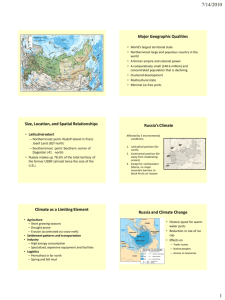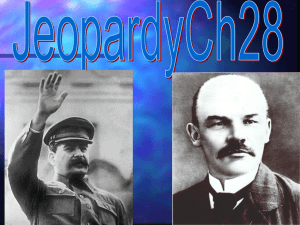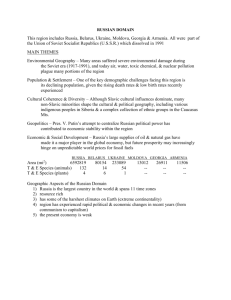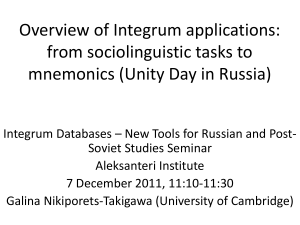The economic logic of the state language policy in Russia: a
advertisement
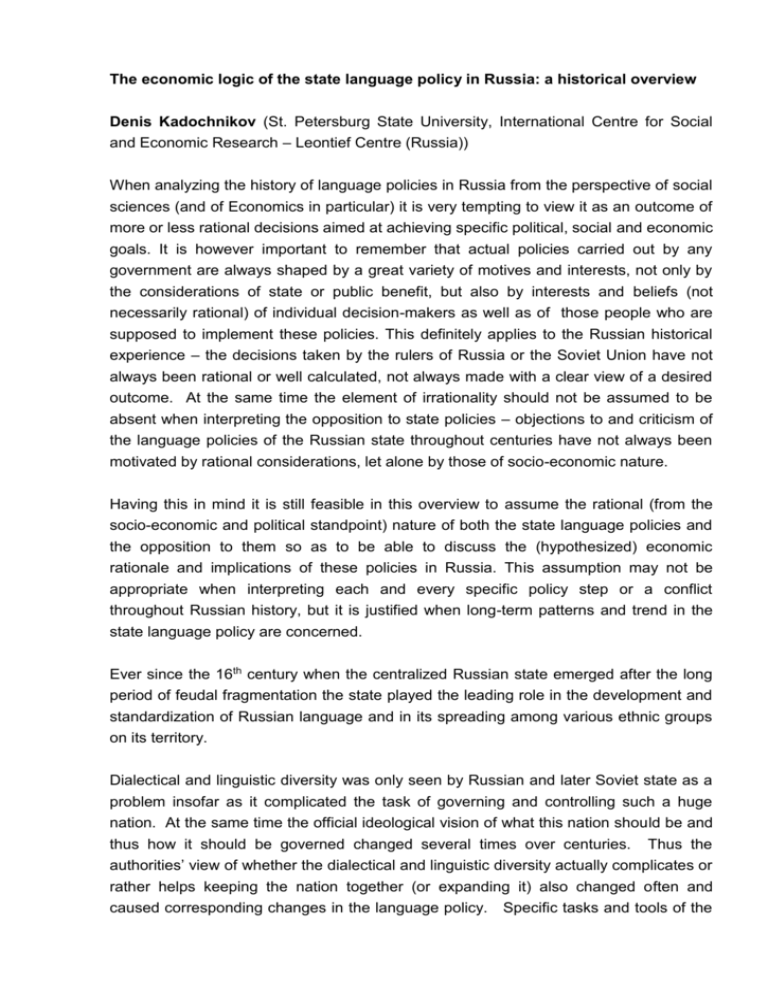
The economic logic of the state language policy in Russia: a historical overview Denis Kadochnikov (St. Petersburg State University, International Centre for Social and Economic Research – Leontief Centre (Russia)) When analyzing the history of language policies in Russia from the perspective of social sciences (and of Economics in particular) it is very tempting to view it as an outcome of more or less rational decisions aimed at achieving specific political, social and economic goals. It is however important to remember that actual policies carried out by any government are always shaped by a great variety of motives and interests, not only by the considerations of state or public benefit, but also by interests and beliefs (not necessarily rational) of individual decision-makers as well as of those people who are supposed to implement these policies. This definitely applies to the Russian historical experience – the decisions taken by the rulers of Russia or the Soviet Union have not always been rational or well calculated, not always made with a clear view of a desired outcome. At the same time the element of irrationality should not be assumed to be absent when interpreting the opposition to state policies – objections to and criticism of the language policies of the Russian state throughout centuries have not always been motivated by rational considerations, let alone by those of socio-economic nature. Having this in mind it is still feasible in this overview to assume the rational (from the socio-economic and political standpoint) nature of both the state language policies and the opposition to them so as to be able to discuss the (hypothesized) economic rationale and implications of these policies in Russia. This assumption may not be appropriate when interpreting each and every specific policy step or a conflict throughout Russian history, but it is justified when long-term patterns and trend in the state language policy are concerned. Ever since the 16th century when the centralized Russian state emerged after the long period of feudal fragmentation the state played the leading role in the development and standardization of Russian language and in its spreading among various ethnic groups on its territory. Dialectical and linguistic diversity was only seen by Russian and later Soviet state as a problem insofar as it complicated the task of governing and controlling such a huge nation. At the same time the official ideological vision of what this nation should be and thus how it should be governed changed several times over centuries. Thus the authorities’ view of whether the dialectical and linguistic diversity actually complicates or rather helps keeping the nation together (or expanding it) also changed often and caused corresponding changes in the language policy. Specific tasks and tools of the state policy with regard to Russian and other languages varied greatly over time. Nevertheless the vision of the Russian language as the key unifying factor fundamental to the functioning of the Russian state persisted throughout most of Russia’s history. Starting from the late 19th century and on through the Soviet period the state language policy has been increasingly aimed at achieving not just political and ideological but socio-economic goals such as the formation of national market or the ensuring of deeper socio-economic integration within the country. This historical overview aims to cover socio-economic implications of the language policy in Russia over the last several centuries – from the late medieval Moscow state to Russian Empire to the Soviet Union and finally to modern-day Russian Federation.


